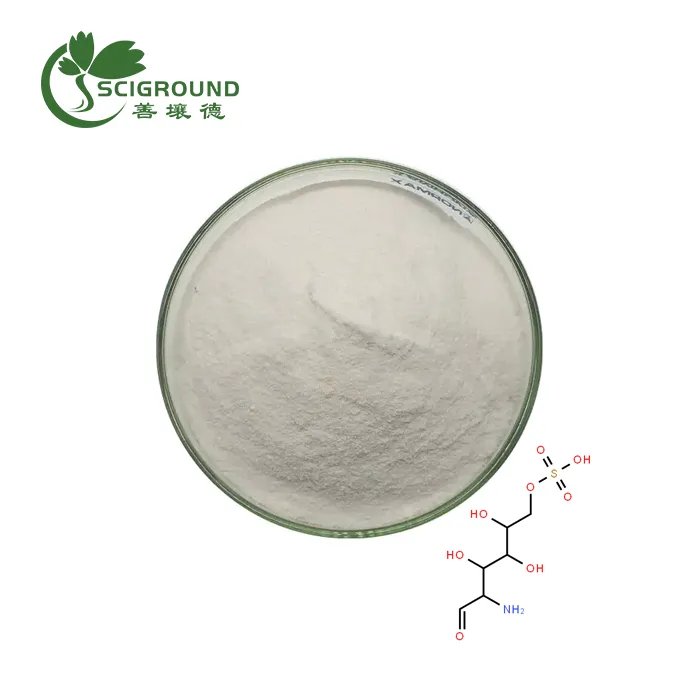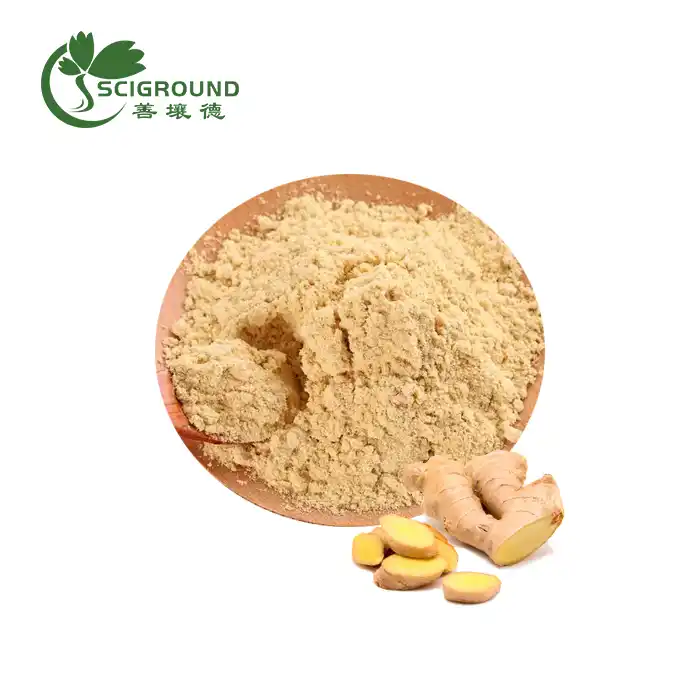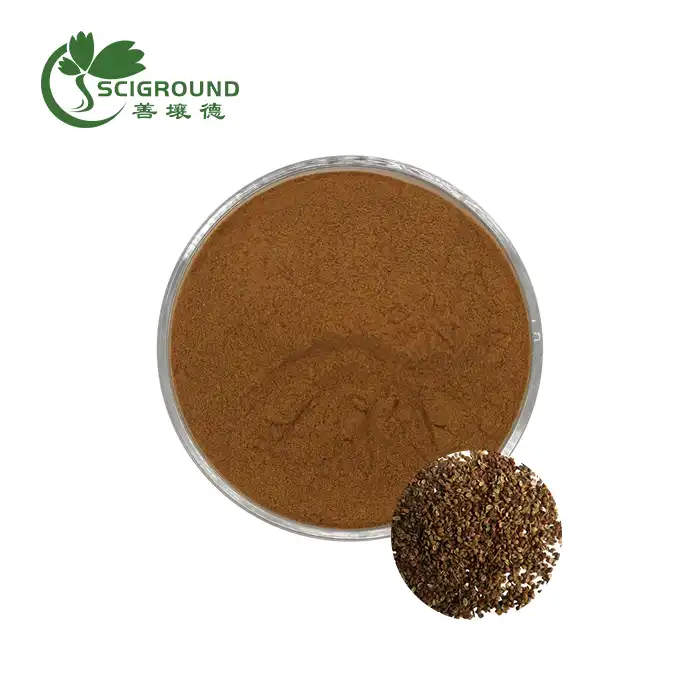what is Albendazole Powder
Albendazole powder is a potent antiparasitic medication utilized in the treatment of various parasitic infections. This versatile drug, belonging to the benzimidazole class of anthelmintics, has gained widespread recognition for its efficacy against a broad spectrum of parasitic worms. As a crucial component in the global fight against neglected tropical diseases, albendazole powder has become an indispensable tool in improving public health worldwide.
The active ingredient in albendazole powder works by interfering with the parasites' ability to absorb glucose, effectively starving them and inhibiting their growth and reproduction. This mechanism of action makes it particularly effective against intestinal parasites, as well as some tissue-dwelling parasites.
What is the use of albendazole powder?
Albendazole powder boasts a wide range of applications in the treatment of parasitic infections. Its versatility makes it a go-to option for healthcare providers dealing with various helminthic infestations. Some of the primary uses of albendazole powder include:
- Intestinal worm infections: Albendazole is highly effective against common intestinal parasites such as roundworms (Ascaris lumbricoides), hookworms (Ancylostoma duodenale and Necator americanus), and whipworms (Trichuris trichiura).
- Neurocysticercosis: This condition, caused by the larval stage of the pork tapeworm (Taenia solium), can be treated with albendazole when it affects the central nervous system.
- Hydatid disease: Albendazole is used to treat cystic echinococcosis, a parasitic infection caused by the larval stage of the dog tapeworm (Echinococcus granulosus).
- Lymphatic filariasis: In combination with other medications, albendazole is used in mass drug administration programs to control and eliminate lymphatic filariasis, a parasitic disease caused by filarial worms.
- Giardiasis: In cases where metronidazole-resistant Giardia duodenalis is present, albendazole can be an effective alternative treatment.
The dosage and duration of albendazole treatment can vary depending on the specific parasitic infection being targeted. For instance, in the treatment of neurocysticercosis, a higher dose over a longer period may be necessary compared to the treatment of simple intestinal worm infections.
It's worth noting that albendazole powder is often formulated into tablets or suspensions for oral administration. The powder form allows for greater flexibility in dosing and can be particularly useful in pediatric patients or those who have difficulty swallowing tablets.
Is albendazole safe for humans?
Albendazole is generally considered safe for human use when administered as directed by a healthcare professional. However, like all medications, it can have potential side effects and risks that need to be carefully considered.
The safety profile of albendazole is well-established, particularly for short-term use in treating intestinal parasites. When used for 1-3 days at recommended doses, albendazole typically causes minimal side effects. Common mild side effects may include:
- Gastrointestinal discomfort
- Headache
- Dizziness
- Temporary hair loss
However, the safety considerations become more complex when albendazole is used for prolonged periods or in higher doses, such as in the treatment of tissue helminthiases or certain off-label uses. In these cases, more serious adverse effects can occur, including:
- Liver toxicity: Prolonged use of albendazole can lead to elevated liver enzymes and, in rare cases, severe liver damage. Regular monitoring of liver function is recommended for patients on extended treatment courses.
- Bone marrow suppression: In rare instances, albendazole can cause myelosuppression, particularly affecting neutrophil counts. This risk is more significant with long-term use and may require regular blood count monitoring.
- Allergic reactions: Some individuals may experience hypersensitivity reactions to albendazole, ranging from mild skin rashes to more severe systemic reactions.
It's crucial to note that albendazole is contraindicated in pregnancy, especially during the first trimester, due to potential teratogenic effects. Women of childbearing age should use effective contraception during and for one month after treatment with albendazole.
The safety of albendazole in children has been well-established for short-term use in treating intestinal parasites. However, long-term safety data in pediatric populations is more limited, and careful consideration should be given when prescribing extended courses to children.
An emerging concern regarding the safety and efficacy of albendazole is the development of drug resistance. Recent reports have indicated treatment failures in hookworm infections, trichuriasis, ascariasis, and lymphatic filariasis. This resistance not only affects the safety profile of the drug by potentially necessitating higher doses or longer treatment durations but also poses a significant challenge to global parasite control efforts.
Can I take albendazole only once?
The efficacy of single-dose albendazole treatment has been a subject of considerable research, particularly in the context of mass drug administration programs for parasite control. The answer to whether albendazole can be taken only once depends on the specific parasitic infection being treated and its severity.
A landmark study conducted in Malaysia evaluated the efficacy of single-dose albendazole in treating various intestinal parasites. The study administered single doses of 400 mg, 600 mg, or 800 mg to 91 patients with single or mixed infections of Ascaris, Trichuris, and hookworm. The results were quite promising:
- Ascaris infections: A 100% cure rate was achieved at all three doses, observed at both 14 and 21 days post-treatment.
- Hookworm infections: The cure rates were high, ranging from 98% to 100% at day 14, and 68.8% to 100% at day 21, depending on the dose.
- Trichuris infections: The efficacy was lower for this parasite, with cure rates ranging from 31.2% to 57.1% at day 14, and 27.3% to 60.9% at day 21.
Based on these findings, the study recommended a single 400 mg dose for Ascaris and hookworm infections, and a single 600 mg dose for Trichuris infections. This research underscores the potential of single-dose albendazole treatment, particularly for certain intestinal parasites.
However, it's important to note that while single-dose treatment can be highly effective for some parasitic infections, it may not be sufficient for others. Factors that influence the decision to use single-dose or multiple-dose regimens include:
- Type of parasite: Some parasites, like Ascaris, are more susceptible to single-dose treatment than others, like Trichuris.
- Parasite burden: Heavy infections may require multiple doses for complete eradication.
- Location of infection: Tissue-dwelling parasites often require longer treatment courses compared to intestinal parasites.
- Individual patient factors: Age, weight, and overall health status can influence the efficacy of single-dose treatment.
For instance, while a single dose might be sufficient for uncomplicated intestinal worm infections, conditions like neurocysticercosis or hydatid disease typically require multiple doses over an extended period. In these cases, treatment may involve taking albendazole twice daily for several weeks, often in cycles with intervening rest periods.
It's also worth noting that in mass drug administration programs for parasite control, single-dose albendazole (often in combination with other antiparasitic drugs) is frequently used. This approach balances efficacy with practicality in large-scale public health interventions.
Despite the potential efficacy of single-dose treatment, it's crucial to emphasize that albendazole should only be taken under the guidance of a healthcare professional. Self-medication or inappropriate use can lead to inadequate treatment, potential side effects, and contribute to the development of drug resistance.
In conclusion, while single-dose albendazole can be effective for certain parasitic infections, particularly some common intestinal worms, it's not a one-size-fits-all solution. The appropriate dosing regimen should be determined by a healthcare provider based on the specific parasitic infection, its severity, and individual patient factors.
References:
- World Health Organization. (2019). "Guideline: Preventive chemotherapy to control soil-transmitted helminth infections in at-risk population groups."
- Horton, J. (2000). "Albendazole: a review of anthelmintic efficacy and safety in humans." Parasitology, 121 Suppl, S113-32.
- Chai, J. Y. (2013). "Praziquantel treatment in trematode and cestode infections: an update." Infection & Chemotherapy, 45(1), 32-43.
- Keiser, J., & Utzinger, J. (2008). "Efficacy of current drugs against soil-transmitted helminth infections: systematic review and meta-analysis." JAMA, 299(16), 1937-1948.
- Lacey, E. (1990). "Mode of action of benzimidazoles." Parasitology Today, 6(4), 112-115.
- Vercruysse, J., et al. (2011). "Assessment of the anthelmintic efficacy of albendazole in school children in seven countries where soil-transmitted helminths are endemic." PLoS Neglected Tropical Diseases, 5(3), e948.
For more information about Albendazole Powder and other plant extract products, please don't hesitate to contact us at info@scigroundbio.com. Our team of experts is ready to assist you with any questions or inquiries you may have.
Related Industry Knowledge
- What is Olive Leaf Extract?
- Do You Have to Cycle Maca Root Extract
- how does corn silk extract help the bladder
- Is safflower extract safe?
- Can You Take Berberine and Inositol Together?
- How Much Capsaicin for Weight Loss?
- D-Serine vs L-Serine
- Mulberry Leaves Extract Powder: A Superfood for Your Health
- Tongkat Ali Extract Powder: Everything You Need to Know
- Lentinan Extract: A Powerful Mushroom-Based Supplement







